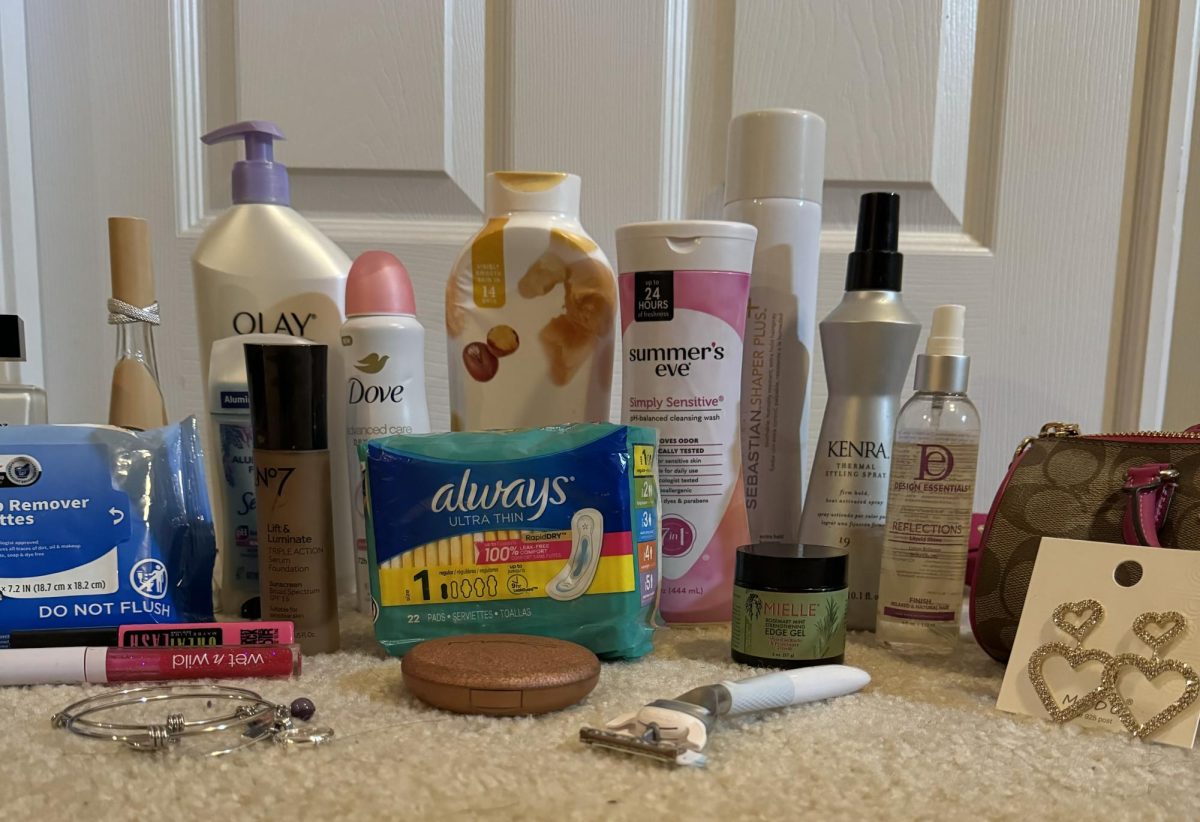According to Kiplinger, women pay about 10-15% more for average everyday products than men. From dry cleaning to haircuts to personal hygiene, women are suffering from the crushing financial burden of this discrimination.
Generally, women pay more than $2,350 annually for similar products and services marketed towards men. This adds up to $188,000 in their lifetime. As stated by Ballard Brief, just for personal hygiene products alone women will spend $13.25 a month which adds up to a $6,000 total for time a person menstruates.
But why is there such a large gap in the price sales for men and women? Does this phenomenon have a name? This is called Pink Tax. As explained by Murray State News, Pink Tax is gender-based price discrimination that makes products marketed towards women more expensive. This can happen with daily personal hygiene products like razors, deodorant, and shampoo. These products are similar to the men’s version, but still sold at a higher price. Women also end up getting sold a lesser quantity of the product for the same prices as the men’s.
Pink tax happens all over the world. Women are already set up to get behind in life because of the sexist government policies that are put into place. This is just another form of discrimination that women need to conquer in order to succeed in this world and not be suppressed by men that still think we’re less than or that necessary products for women are just luxuries.
But this is not a new issue. Pink Tax has been around for quite some time. In fact, it originated back in 1994 where the California Assembly Office of Research found that 64% of the main business cities charged more to dry clean a women’s shirt than mens. This led to the Gender Tax Repeal Act of 1995 being passed in California. So, although a few states have banned this, some still don’t understand why this is such a huge problem.
The fact of the matter is that women’s vaginal health is stigmatized. The people who make these government policies don’t actually know anything about a woman’s vaginal or sexual health and this transfers over into the price of things like tampons, pads, and condoms.
Traci Branch, a working woman, a workforce planning specialist for the USPS, had some intriguing thoughts on this issue.
“Stop looking at feminine hygiene products as a luxury and more as health care. It’s not a luxury. It’s a necessity,” Branch said. “Commercials show our products as really cute and as a good thing but we need to think more of a health need. In other words, we need to change our perspective. This is not just a women’s issue, it is a world issue, a people issue.”
The fact that women are paid less than men only makes this situation worse because if women already have less money that puts even more financial pressure on them when they have to decide between products they need because they are too expensive. If women and men were paid equally then, the difference in the price of our products would not be so financially crushing and women might be able to better sustain themselves.
Consequently, women end up not having access to the things they need and are stuck with lesser credit, higher car payments, and mortgages. The sad thing is that most women are not even aware of what’s happening to them. So, we are impoverished trying to stretch out a paycheck that does not neary encompass the hard work that we have done but still not recognized just because of their gender.
Christian Davis, a female professional writer for Hollywood, had some very profound thoughts on the impact of this financial discrimination against women over time.
“I think it creates a society where women have to fight for scraps and men are always given a chance, when women have come in and prove over time that they deserve this pay,” Davis said. “Some men feel like they don’t have to work as hard as the women do because they know that they’re going to get whatever they want regardless, where women have to go above and beyond to get those things.”
However, there are ways women can counteract this because we deserve better and will not settle for anything less than. We owe it to ourselves and the next generation to try and make things more equal.
“I think that it should be mandatory for people in the workplace to tell how much they are getting paid so that it’s not a secret,” Davis said. “Companies thrive off secrecy and continue to impress us that it is a bad thing to share your salaries because if no one knows how much you’re getting paid, they won’t notice how big the discrepancies in salaries are. Furthermore, if we know this then there is no room for unfairness.”
Yet, women still choose to suffer in silence because they are scared to speak up. Luckily, Davis shared some helpful tips about how women can make their voice heard in a safe environment. “Most women know that if they speak up there might be backlash, people could bully them on their job, and whenever they try to speak up again they will always be reminded of this moment. The company needs to create an environment of safety and equality, then women might have the footing and backings of company policies to speak up for what’s fair and what’s right,” Davis said.
This is just not a man’s world, a woman can make her mark too. The next generation needs to be better educated on this topic and its importance so that they will have the tools they need to succeed.
Davis had some wonderful insight on how we can make the next generation more aware of this issue.
“More men in the workplace should speak up because they are the ones that are protected and have that safety,” she said. “So, when they see that another group is being mistreated or if they have the chance to promote women, they owe it to them to speak out on these issues when they can’t. Women also need to tell their stories to younger women so that they know what pitfalls to expect and how to maneuver around them, so when the next generation of women gets to the workplace hopefully there is a shift.”














